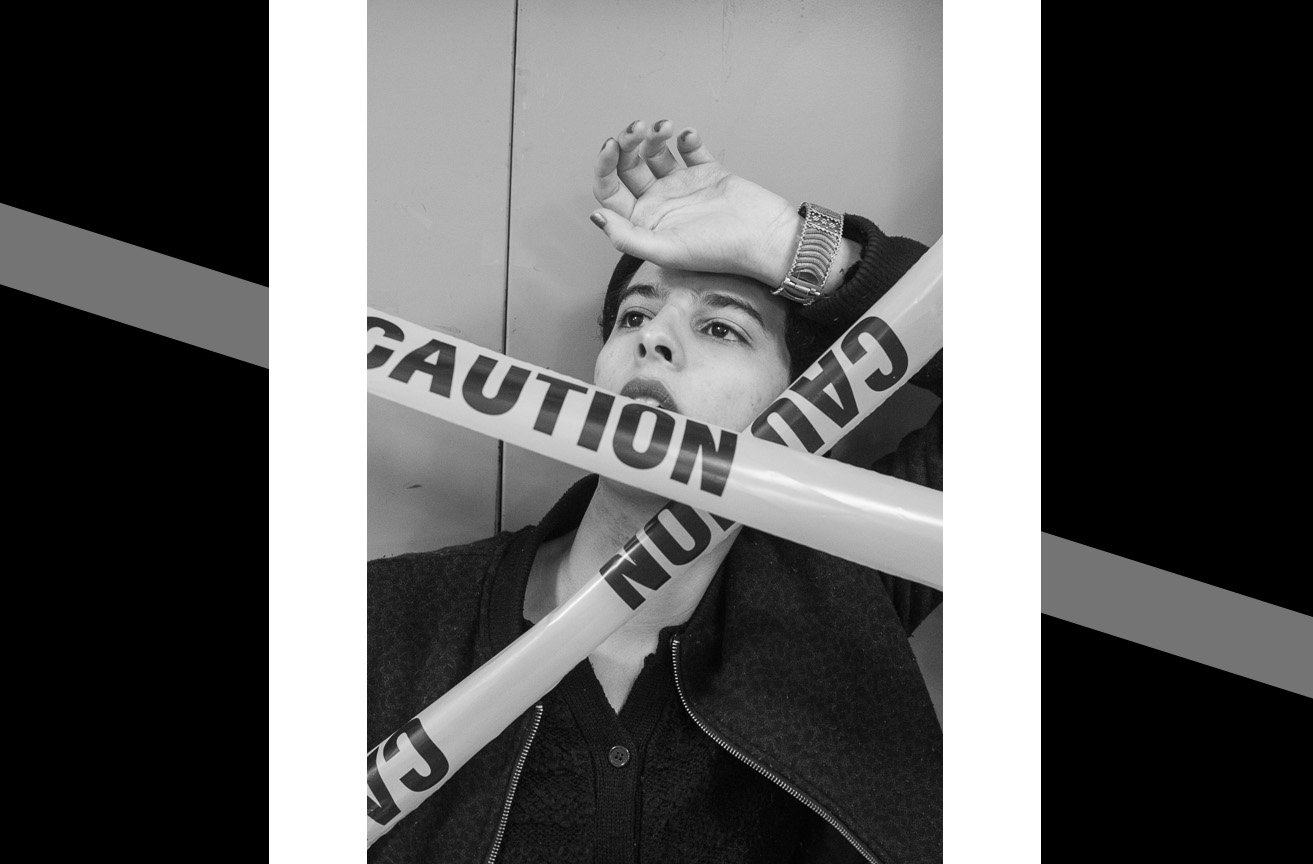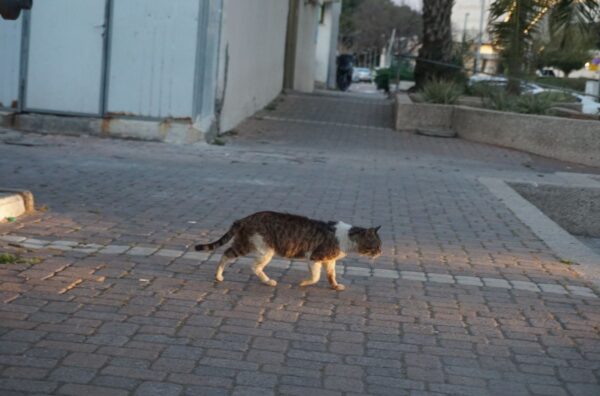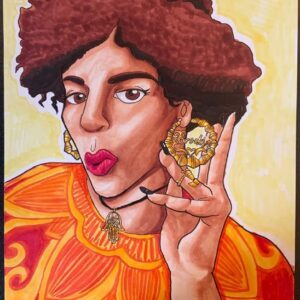As far back as I can remember, my grandparents who survived the holocaust and the Yemenite Farhud would tell me, “Don’t trust the goyim, keep your faith, and always stick to your tribe.” They instilled this xenophobic fear of gentiles in me to reduce my contacts in the “goyishe world,” so if I were to come in contact with “them,” it’d ensure I never let my guard down. The ingrained fears of non-Jews and those living outside of the Jewish community surrounded me not only at home, but in my yeshiva. As many of my Rabbis would put it, “If you stop observing the Torah, and if Jews ever assimilate, g-d punishes our ‘holy’ tribe with more mass genocides.” Any child who hasn’t developed their own opinion, terrified, easily buys into this propaganda of a distorted lens on Jewish education, Israeli Nationalism, holocaust remembrance used to scare us from leaving Judaism, and an anxious brand of Frumkeit, holding steadfast to Orthodoxy.
If a Baal Teshuva can have a soul that was made to return them to faith, I always felt burdened being in an ultra-traditional environment, with a neshama that wanted to break kashrus, and make my life purposeful on my own terms. Don’t get me wrong, I loved Nevi’im, Dinim, and even remembered the countdown days in the Hebrew Calendar until the next Simcha, waiting to snack on delicious Osem treats. As much of an internal dissenter as I was, I kept a facade that appealed to my biological family, synagogue, and teachers. I even convinced myself that I wasn’t trying hard enough to abide by my ancient heritage: instead of attending University, I became one of the only 12th graders in my school to go to Israel, thinking there I’ll find myself, there I’ll get closer to g-d, and make my family proud.
I was dead wrong!
I spent two years at an intense Yeshiva in Jerusalem and quickly lost motivation. I invested my time in volunteering at soup kitchens, senior centers, and an arts therapy practice with special-needs teenagers across the old city of Jerusalem. I slept through every shiur I went to and dwindled in my participation in davening. I was like an alley cat of the Harovah in the old city of Jerusalem: cute, mysterious, strange, played with, but not treated with the same humanity as those walking on two feet.
The tension between myself and the Yeshiva environment finally pushed me to break free from my Orthodox traditions. I went from being one of the most beloved students at my seminary to being despised by my Rebbeim for coming out as queer. After returning to the United States and enrolling at CUNY, I explored my ex-orthodoxy, gender identity, and the vast new ways I now describe myself that I never had in the first chapter of my life. The first two years of college, I was anti-religious, though still culturally Jewish. Over summer 2014, an NGO called Urban Arts gave me a grant to visit the green line in the occupied territories of Palestine, alongside 40 Arts Educators to build murals of co-existence with the youth of two sides of the border. It was here in Sderot, Katzrin, Arad, and settlements across the “Kav Hayarok”, I learned the power the arts has to heal, unite, invite into respectful dialogue what was easily painted as a black and white issue that can wave its gray brush strokes of restorative healing.
But returning back to New York, it would be harder than I imagined to find communities that both departed the “chosen” people and would protect me from an onslaught of growing antisemitism. When I returned to school that fall, a Hunter College sponsored facebook group called “Hunter Secrets’‘ encouraged students to submit vile information exposing students’ privacy. The same Secrets’ page became a sensation across CUNY campuses. In the aftermath of Operation Protective Edge, an IDF attack on Gaza, “Hunter Secrets” listed profiles of every Jewish student on campus and posted their faces, to be cyberbullied as “Dirty Zionists”, the scapegoat cause of Palestinians’ daily suffrage. My deteriorating Jewishness, and devout leftism, became drastically advertised on my “liberal” campus and made me into a hunted target. Several CUNY campuses at the time were vandalized with nazi and antizionist propaganda, scapegoating every Jew for the blood, war crimes, and disparities of the world. It’s cultish and absurd for any group of people to be blamed for all the planet’s travesty, but it doesn’t stop conspiracy theories or blood libels from spreading.
I reported the antisemitism I witnessed both on social media and on campus, an environment filled with other sexist, racist, homophobic vandalism like on Thomas Hunter building’s staircases. I approached my campus’ Hillel about this issue. To my chagrin, many of the white, upper class Jews acted aloof, telling me, “We don’t want to get involved, just look the other way,” It was hard to watch them accept numbness to the antisemitism around them, as though the best way to be a Jew was being neutral in every situation, until their hands are tied.
I spent the next year corresponding with several CUNY Vice Presidents and Deans who pushed off my call for justice and experiences of harassment and threats to my personal safety. Recently, all CUNY campuses have come under fire, with several lawsuits in the past decade for underreported sexual assualt, neglient drinking, and antisemetic attacks among others hate crimes, reported by minority students. As a result, the City Universities of New York now have mandanted semester non-credited courses in being a bystander to hate crimes and sexual/alcholic abuse, along with every bathroom on campus becoming Trans* friendly, due to my efforts.
It wasn’t just from fellow students that I experienced antisemitism but from upper staff backlashing me for my advocacy against Jewish student harm. After receiving a scholarship from the Accessibility Club at Hunter College, I met with the Director of the Office for Students with Disabilities, for me to witness her grant signature. A meeting that was supposed to take thirty seconds led to a two hour conversation, in which she policed me for my role advocating for myself on campus. Instead of signing the check, she began to chastize me about my conduct as a campus activist, eventually attempting to discipline me for a potential lawsuit on antisemitism that had nothing to do with her department. My former Director eventually ripped my check for viewing me as Chutzpadik, claiming “your attitude,” which is to say, my activism, “will not make people want to work with you, and I care about your future career.” Mind you, I never met with her at her office before.
It was remarkably disrespectful for the CUNY heads to send a student with disabilities to be “coached” on their advocacy by a director who is abled-bodied, to speak down to me like I’m a naive baby who needed discipline. I was then dismissed without the scholarship, for being a Jewish student on campus engaging in self-advocacy in an environment that was hostile towards many. What she didn’t know was a successful lawsuit over similar issues would soon cut CUNY’s budget by a half billion dollars for the inactions it took to preserve the dignity of all learners, Jews included.

When I’m met with antisemitism, like urbanites in my neighborhood shouting on Shabbat, “Hitler should have gotten you,” or the Jersey City Shooting where in Fall 2019, “Jews are the cause of gentrification” became a reason for two Jersey residents to kill Hasidim, I struggle to let go of the triggers embedded by my fear-mongering Rebbeim from childhood, who always said, “You can’t trust the goyim, we aren’t safe outside of our world, they will always hate us no matter we do.” With every swastika painted on a workplace entrance, neo-nazi posting, or antisemitic incident on campus, and venting to your gentile colleagues who stare at you oddly like a Yiddishe Twilight Zone, it feels Jews targetization is a generational curse, inescapable and part of our birthright.
Every day I wake up in a world where I was born with several targets ingrained on my back based on my gender identity and expression, sexual orientation, race, ethnic and immigrant status, disability, and faith. It is often terrifying to the point that it makes me contemplate suicide or a life in hiding to avoid what feels like inevitable potential harm. It’s easy to tell oneself to have pride and not care what others say or believe about your existence, but when your reality is met with intentional shoves, snickering comments, and heads swaying in disapproval to add to their semi closeted bias, the reality is that there is real danger in the world.
Being both visible and othered in your environment can lead to your death, while living in the closet gives power to those who wish to erase us while destroying the wellbeing of your own life; another form of decay. Which demoralizing path would you choose? How can I find support for dealing with intense antisemitism? How can I cope with the daily experiences of intergenerational trauma if Jews can’t tackle the historical blood libel conspiracies, scapegoating, and marginalization by all my identities unsupported?
It’s a struggle to find a community that both honors all of these identities and stands behind a sense of Jewish pride. Many NGOs that fight antisemitism are conservative-leaning and use our shared pain to push for a fixed ideal of being a tribal member as seen in every “Pro-Jewish” demonstration. It’s particularly difficult for ex-orthodox Jews, who lack forums to discuss being at odds with our former faith-based communities while wrestling with societal disparities from rising antisemitism.
I attended this past summer, to a “End Antisemitism” rally in D.C, knowing I was one of the few liberal, let alone Mizrahi/nonbinary folks, attending a largely centrist and rightwing rally. Most left-leaning Jewish organizations refrained from participating, as Jewish-pride organizers always seem to use “antisemitism” as a crutch to preach about a narrow view of Achdus (bonding) through Kiruv (missionary work) and ultra-fixed sentiments on Zionism, often excluding voices who oppose the glamorized theocratic holy land. I decided to attend regardless of the absence of my fellow leftist Jews, to declare, “I care about the security of American Jews as I do for all marginal minorities, while striving for legislation that updates the cultural understanding of identity based hate crimes” which according to the FBI, Jews account for over 60% of religious based discrimination and reported violence in recent years.
But antisemitism can’t be the central rallying call for Jews to unite. The term is vague, Jewish folks aren’t a monolith, and the divisions in our spectrum of peoplehood are so vast that trauma can never be the force of nature to bring us together. Discussions of community building shouldn’t be contingent on our various denominations’ Rabbis or Elders, but rather among laypeople, and not just in times of trauma and identity crisis. With the American press reminding us daily of Jewish-owned stores attacked with nazi vandalism or Jewish college kids excluded from social settings for being linked to a conflict abroad they aren’t involved in, to casual antisemitism by gentile “friends” blaming their rifts with Jews by projecting their problems onto Jewish peers especially as it relates pinpointing us everytime, one needs someone to blame for the I/P conflict; to even being criticized, shamed as “whining” by other yids when I speak out. I sometimes find more comfort among gentiles than my cynical tribe who are steadfast to label their own as “self-hating Jews’ ‘ when our religious and political beliefs don’t align with their agenda. Being told by frummies to “have faith” doesn’t alleviate my anguish of daily harassment as a Jew of color in the USA.
Some Rabbis hold that the plight of the Jewish people having enemies “B’chol Dor Vador,” in every generation, could be a reminder to always be kinder to others, using the experience of oppression to counteract the harm towards other vulnerable people. The Jewish community has been wrestling with the multi-billion dollar question of “how to eliminate antisemitism” for centuries. Right wing leaders want our people to self-isolate, be vigilant of the goys, and hope that through learning Torah and davening we’ll be kept safe. Left-leaning Jewish leaders want to aim for our integration, and call for social justice partnerships to build better understanding with other communities to protect ourselves and others. Yet both sides of the horseshoe effect haven’t prevented immediate harm against Jews. The notion of assimilating versus standing out has been criticized as a poor measure to guarantee our collective safety by harm reduction experts for vulnerable demographics. How can I bond with my fellow Jews if the majority of their spaces are exclusionary for my race, gender, orientation, and political beliefs? One shouldn’t have to hide who they are or only congregate among their own to ensure their future.
Often as a writer, the only place I can be heard is through my own craft. If nothing in this world is perfect, why do my resolutions have to be any different? May we all be blessed to hold forums with respected confidants who can alleviate our fears, negative inner dialogue, and isolation in a loving, judgment free, holistic circle of Jewish friends, whether ex-orthodox or devout, to gentiles and allies, who make us all feel at home and not alone as we tackle the state of hate together.
Featured images credit to the author, Mx. Je’Jae Daniels, @Mx.Enigma



